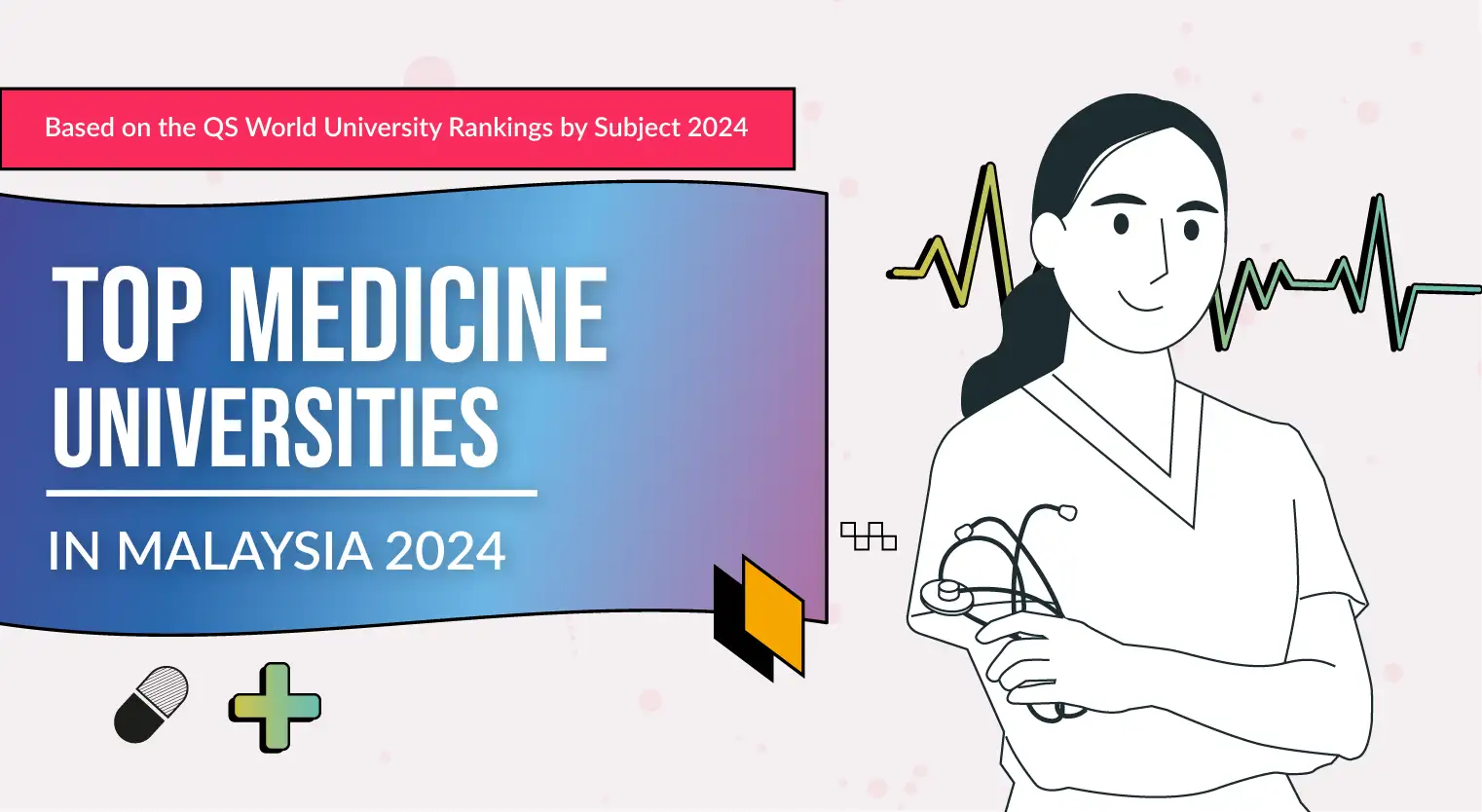7 Viral Medical Myths We Should Put To Rest
Ever heard of a viral infection? Like any salacious rumour, these 7 medical myths have been spreading far and wide. It’s time to separate fact from fiction.
Updated 23 Feb 2022
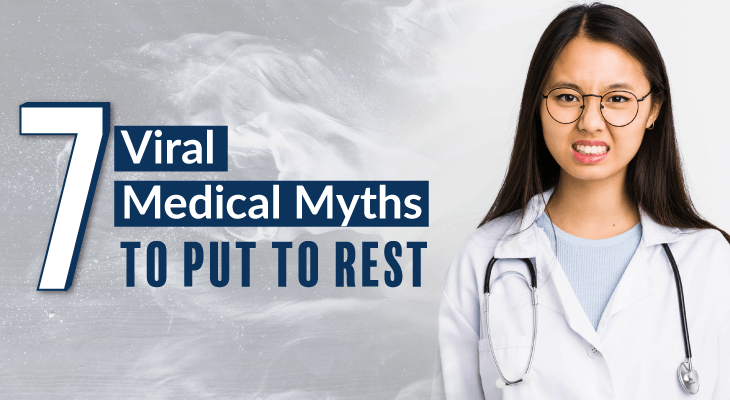
The medical world is rife with misconceptions and myths. While some have been successfully debunked (no, you cannot get HIV from a simple handshake), some myths are more persistent.
Here are 7 medical myths you really should ignore by now.
#1. GMO food is bad

Did you know that the corn we know today has been genetically-modified? The act of genetically modifying food may sound sketchy but do you really understand what it means?
Essentially, it is the act of modifying the genetics of a food product by combining it with a foreign gene. This foreign gene could contain a variety of characteristics not naturally present in the product like stronger resistance to insect pests as well as higher nutrient counts. In short, we modify food to make it better and sturdier than its original version.
Many consumers fear genetically-modified foods, believing that they pose health risks. However, the scientific consensus is that GMO foods are safe. In fact, studies have shown that GMO products do perform better, with crops yielding at a higher rate and animals fed with GMO feed showing improved health and growth efficiency.
Of course, the field is not without its controversy but chances are, the GMO products you find at your market are generally safe for consumption.
#2. Vaccines can give you autism
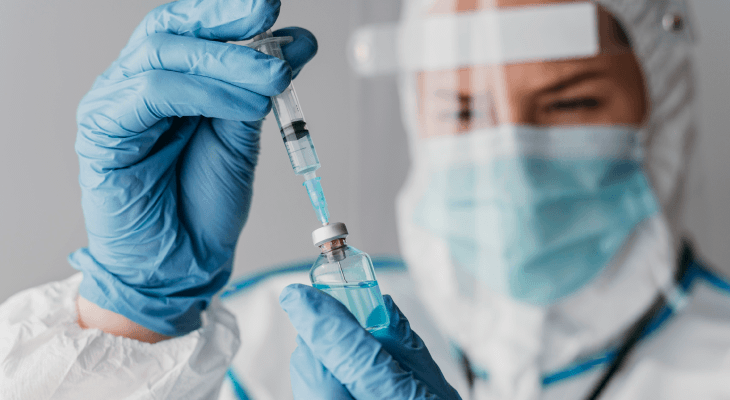
Anti-vaxxers have routinely rejected vaccines, touting it as the cause of autism. It’s a tale as old as time but is it true?
This myth traces its origin from a medical journal published in 1998. The journal, written by a doctor who has since lost his practicing license, suggested that the measles, mumps and rubella (MMR) vaccine causes autism.
The problem is, no one else could corroborate his findings. What is even worse is the fact that the author has monetary incentive to make this false claim. He had apparently patented his own measles vaccine, so spreading malicious lies about the MMR vaccine would only profit him.
Regardless, the lie is out there and while it has been two decades since, there is a growing movement of parents refusing to vaccinate their children due to this unfounded concern.
#3. MSG is bad for your health
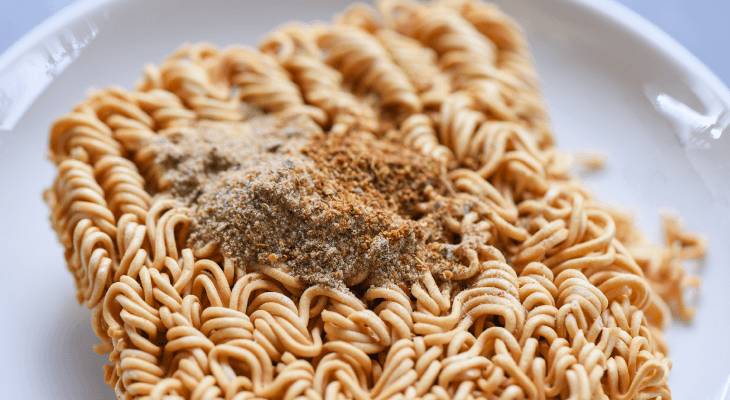
Monosodium glutamate (commonly known as MSG) has an image problem. For years, many choose to avoid it, claiming that it is bad for your health. But is it as unhealthy as we have been led to believe?
The answer is no.
Yes, there are some people that may react negatively to MSG. In fact, this was what started the myth in the first place — in 1968, a physician attributed MSG as the cause for symptoms like general weakness and heart palpitations — but it’s not that different from people with food allergies.
The truth is, MSG has been deemed safe by experts everywhere, including the U.S. Food and Drug Administration (FDA). The fact that MSG occurs naturally in many foods such as tomatoes, cheese and mushrooms should give you some assurance as well.

#4. Microwaves can give you cancer
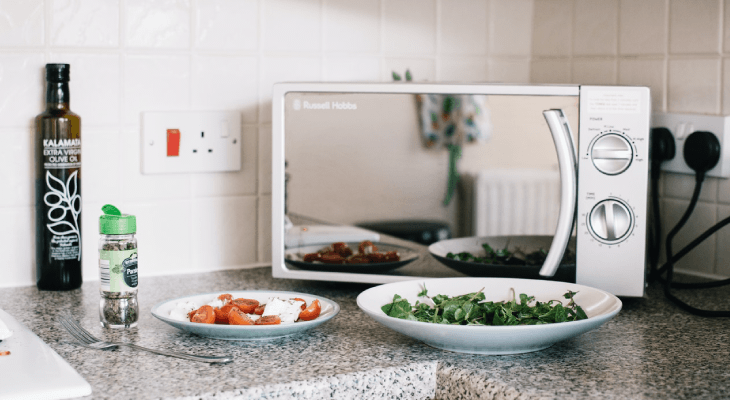
Yes, microwaves do emit radiation. But it’s not as radioactive as you may have been led to believe. Microwaves produce electromagnetic radiation, a non-ionising radiation that can move molecules but not electrons. What does this mean?
Well, this radiation can heat up things by making the molecules move faster. However, it cannot move electrons, which means that the chemical component of the food remains unchanged. In short, microwaves cannot turn food radioactive. It only heats them up.
Perhaps the only real fear with microwaves is the fact that it can burn your body parts. But, modern microwaves are invented with this problem in mind. As long as you make sure the metal shields and screens are intact, there shouldn’t be any risk of harm.
General consensus agrees that microwaves do not cause cancer. As long as you follow the instructions correctly, you can continue to use your microwave.
Apply for university with EduAdvisor
Secure scholarships and more when you apply to any of our 100+ partner universities.
Start now#5. Cracking your knuckles will give you arthritis

There’s nothing more satisfying than listening to the crinkling pop as you crack your knuckles. However, some people have advised against doing this as it can apparently cause arthritis.
Well, science would beg to differ.
A doctor once conducted an experiment to prove that knuckle-cracking does not lead to arthritis. He spent 60 years cracking his left knuckle while leaving his right one uncracked. At the end of his experiment, he checked for signs of arthritis and found no difference between his two hands.
He’s not the only one. Studies have been conducted to check for the effect of bone-cracking. One did find that knuckle-crackers have weaker grips but correlation does not imply causation. Generally, there is no conclusive evidence to point out that knuckle-cracking can lead to health complications. It’s mostly just an annoying habit.
#6. We only use 10% of our brains

Have you seen the movie Lucy by Luc Besson? Based on the pervasive myth that we only use 10% of our brain, the movie follows a woman who accidentally ingested a drug that allows her to access 100% of her brain power.
But how accurate is this myth?
Well, scientists have yet to find any proof to back this claim. In fact, a PET scan of a normal brain reveals that even in periods of rests, our brain is constantly active. Some areas may be more active at certain times, but there is no part of the brain that is absolutely not functioning. Even people who suffer from neurological diseases such as Alzheimer’s and Parkinson’s still use more than 10% of their brain.
So this is another myth you can forget about.

#7. Late night showers cause pneumonia

A myth commonly heard in the Asian community, children are often told to avoid late night cold showers for fear of pneumonia.
But pneumonia, commonly called paru-paru berair in Malay, is not something you can get from a cold shower at night. It’s actually a type of infection to the lungs caused by a bacteria or virus, which can come from anywhere, even from something as common as the air we breathe. You don’t have to worry though as your body usually does a good job of protecting you from this.
So no, you don’t have to shun late night showers for fear of pneumonia.
In fact, a small study has shown that a warm shower before bedtime can actually enhance the quality of sleep, particularly in the elderly.
Have you been perpetuating any of these common myths?
While some may be harmless, others can cause actual harm. For instance, anti-vaxxers have rode on the tail of the autism-inducing vaccine myth to avoid vaccinating their children, which can lead to lower herd immunity and put the community in danger.
So, if you ever hear someone peddling these misconceptions, consider taking a moment to correct them.




